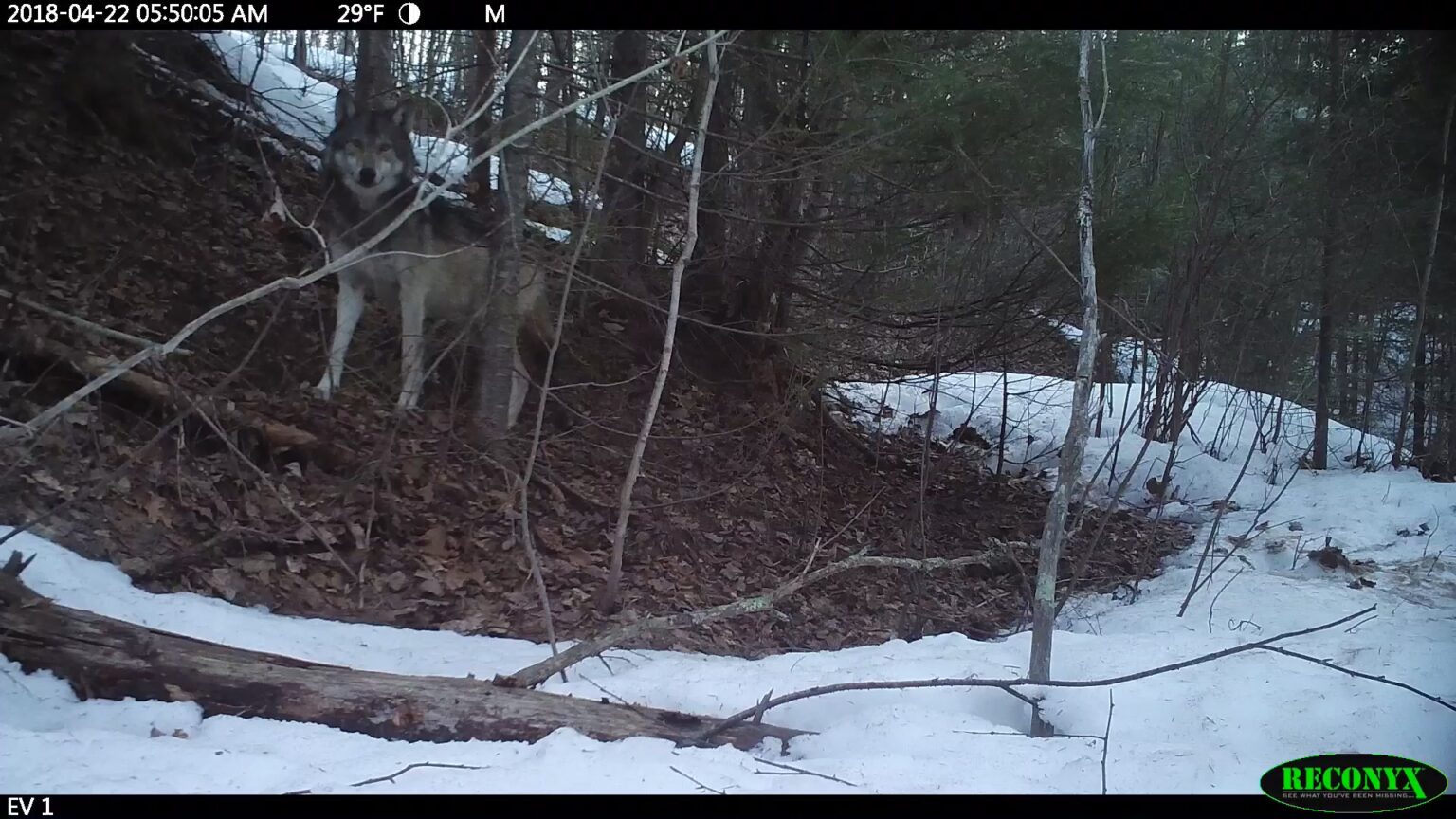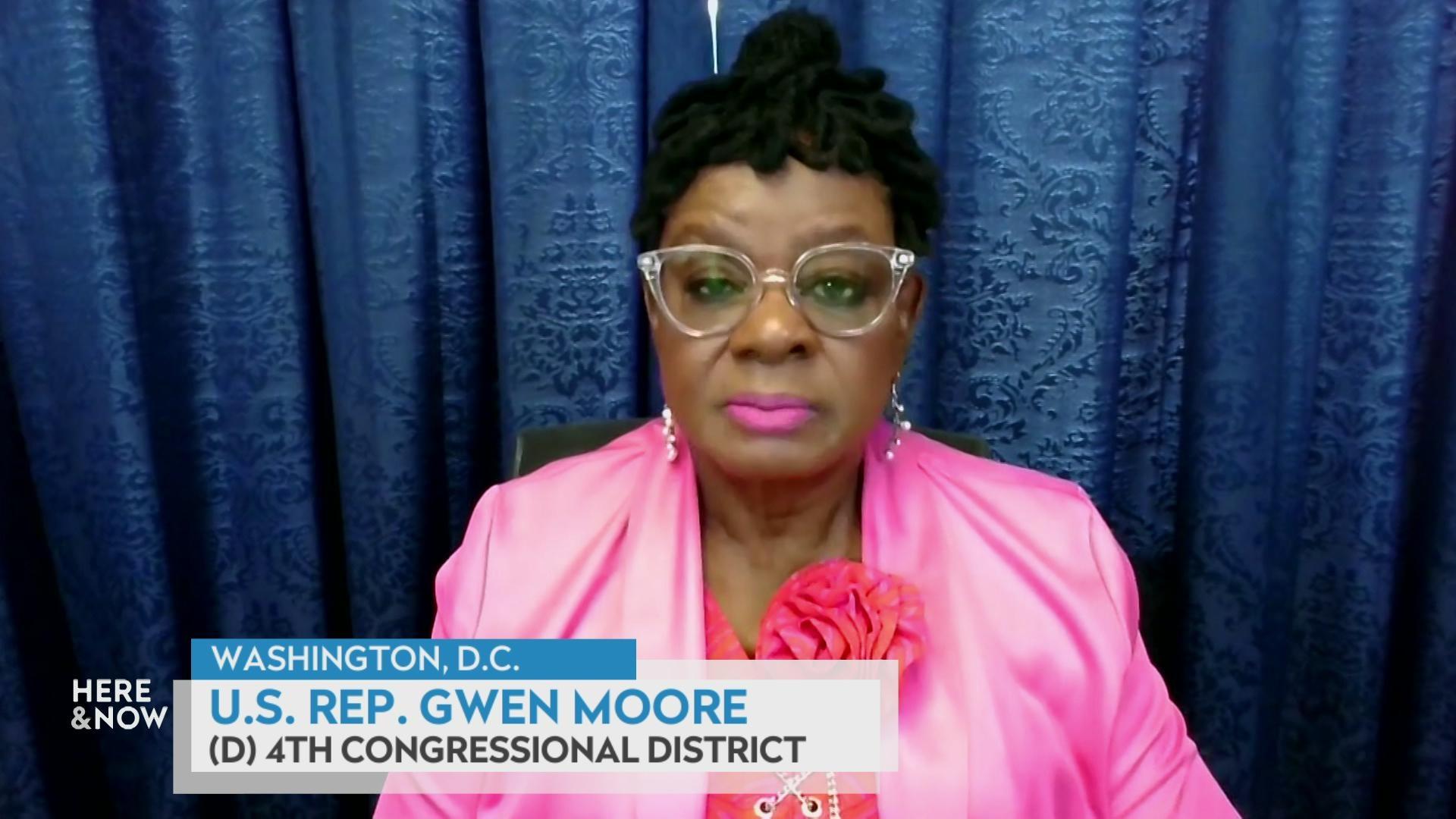Wisconsin Assembly passes bill mandating a wolf population limit
The Wisconsin Assembly passed a bill to set a firm cap on the state's wolf population — the legislation was passed by the state Senate in October and goes to Gov. Tony Evers for his approval or veto.
Associated Press
January 25, 2024

A trail camera photo from April 22, 2018 shows in a snowy wooded area. Wisconsin Republicans sent a bill that would mandate state wildlife managers set a cap on the state's wolf population to Gov. Tony Evers on Jan. 25, 2024.

MADISON, Wis. (AP) — Wisconsin Republicans sent a bill to Gov. Tony Evers on Jan. 25 that would mandate state wildlife managers set a cap on the state’s wolf population, forcing the governor to choose between pleasing conservationists who want to protect the creatures and farmers who say wolves are destroying their livestock.
The Assembly passed the bill on a voice vote with no debate. The Senate approved it in October. Evers will have to decide whether to sign it into law or veto it. His spokesperson, Britt Cudaback, didn’t immediately respond to a message asking where Evers stands on the proposal.
The state Department of Natural Resources, an Evers cabinet agency, adopted a wolf management plan in October that didn’t include a hard cap. The plan instead recommended keeping the population at around 1,000 animals.
The plan replaced a management plan the DNR adopted in 1999 that set a hard cap of 350 wolves. DNR officials have argued the new approach gives wildlife managers more flexibility.
The new plan pleased at least some environmentalists who argue that wolves haven’t firmly reestablished themselves in Wisconsin. Decades of hunting rendered wolves all but extinct in the state by the 1950s. Today the population stands at around 1,200 wolves, according to DNR estimates.
Residents and farmers across northern Wisconsin maintain that wolves have become so abundant that they’re attacking their livestock and menacing children and pets. They have demanded a hard population cap in the new management plan.
Wolves are currently listed on the federal endangered species list and cannot be hunted. But if federal officials ever delist them the DNR would be forced under state law to hold a wolf hunt. The population cap would then come into play as DNR officials consider how many wolves hunters could kill. The lower the cap, the more wolves hunters could harvest.
Republican legislators have sided with their constituents in the north, calling repeatedly on the DNR to adopt a hard cap to no avail. Republicans who control the state Senate refused to confirm four Evers appointees to the agency’s board in October after they hedged on whether they support a hard cap.
Not all conservationists support the new management plan. The Great Lakes Wildlife Alliance, also known as Friends of the Wisconsin Wolf & Wildlife, filed a lawsuit in November accusing DNR board members of violating the state’s open meetings law during the run-up to adoption, not considering the dangers of overhunting wolves and allowing unverified accounts of wolf aggression to influence the plan.
The lawsuit is still pending in Dane County Circuit Court.
 Passport
Passport











Follow Us